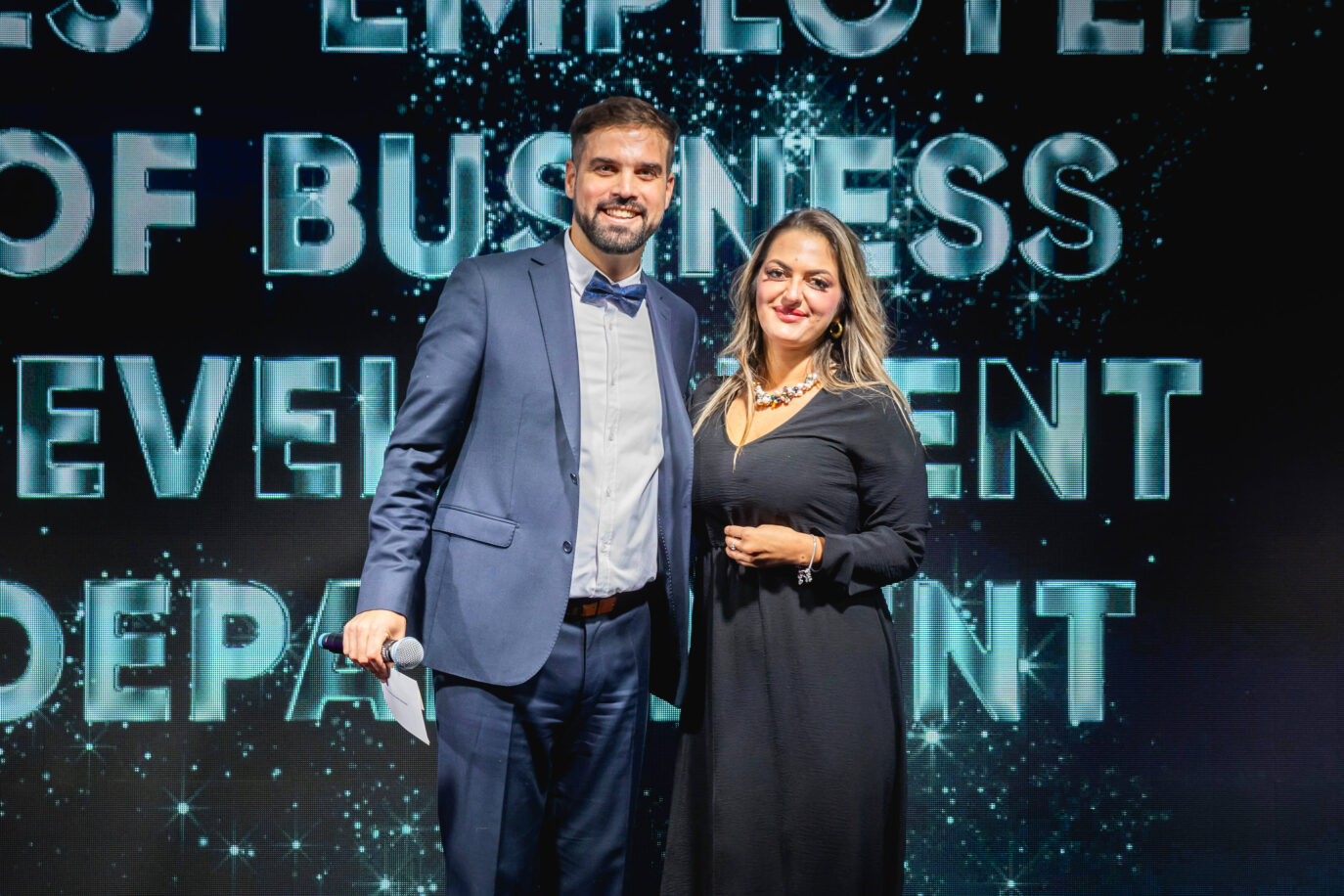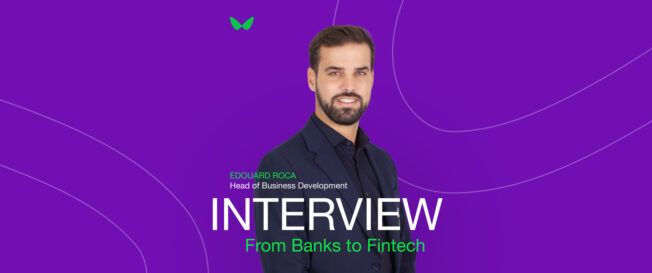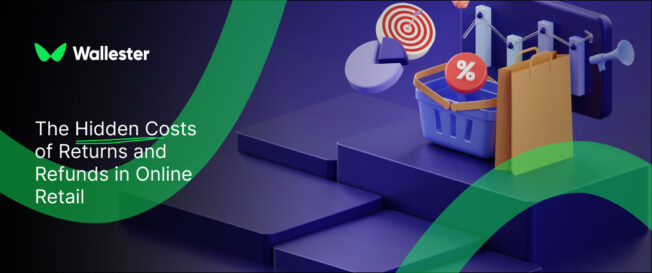With more than a decade of experience in payments, Edouard Roca has seen the industry from every angle.
He began his career in traditional banking at Société Générale, then moved to FIME, a well-known payments lab and consultancy, and today he drives growth at Wallester. His career spans both emerging markets and Europe, providing him with a broad perspective on how businesses approach payments.
As Head of Business Development at Wallester, Edouard now helps companies across France and Europe launch card and payment services in weeks rather than years. We sat down with him to talk about his career path, the contrasts between banks and fintechs, and the trends shaping how European businesses manage spend.
Interviewer: You’ve spent more than a decade in payments – from Société Générale to FIME and now Wallester. How did you end up in this industry, and what keeps you here?
Edouard: Honestly, it wasn’t something I planned at all. After graduating from business school, I joined a French programme called Volontariat International en Entreprise (the French International Corporate Volunteer Program). It lets young graduates work for French companies abroad. Société Générale had an opening in Senegal to help launch a financial inclusion solution, and I got the role.
I was sent to Dakar for four years, where my job was to promote the new mobile service, build partnerships, and create the ecosystem so people could actually use it. It wasn’t about Visa cards or digital wallets – it was mobile money for unbanked people. So that’s how I put my first foot in the payments industry.
And what’s kept me in payments is the fact that it’s never dull. Even after more than ten years, you don’t feel like an “expert” because the field moves so quickly. There’s always something new happening: issuing, acquiring, mobile banking, tokenisation, and compliance. It’s a dynamic market where there’s always something to build or improve. I enjoy seeing new solutions launch and then watching how people use them in real life. That’s what keeps me motivated.
Interviewer: You worked in Senegal, then came back to Europe. How did those very different environments shape your approach to business development?
Edouard: The contexts were utterly different. In Senegal, we were essentially building a mobile-phone-based payments ecosystem from zero. We weren’t just giving people a new tool. We had to explain what it was, why it mattered, and convince them to try it. This involved collaborating with various partners: relying on gas station networks to allow customers to top up or withdraw cash, on telecom operators for infrastructure and credit purchases, and on local merchants to encourage adoption.It was very hands-on.
The main lesson I took from this experience is that ecosystems are essential. Even if a partner doesn’t seem directly connected to your product, by talking to them, you often discover opportunities you wouldn’t have imagined. That’s still how I approach business development today – by meeting people, asking questions, and building use cases together.
When I returned to Europe, the challenge was very different. Payments and cards are mature and more widely adopted. So, the ecosystem is already in place, but it’s heavily regulated and more complex. You have to integrate with accounting systems, comply with strict security standards, and navigate regulations while bringing innovation. The challenge, then, becomes showing companies that payments aren’t just a commodity. They can actually improve loyalty, simplify operations, and help a business scale. Both environments shaped the way I work today.
Interviewer: You started in the “old world” of banks like Société Générale, and now you’re in fintech. What are the most significant differences?
Edouard: Société Générale was an excellent school for me. It’s where I discovered payments and learned the fundamentals. Fintech is different. The pace is fast, decisions happen quickly, and technology is owned in-house rather than outsourced. That means you can release new features continuously instead of waiting years.
What I took from the bank experience is respect for compliance and risk. Payments are not just about shiny apps – they’re about trust, and banks understand that well. The challenge in fintech is to keep that rigour while still moving fast.
Interviewer: So what attracted you to Wallester, and what do you think makes the platform stand out for European companies?
Edouard: What attracted me was the speed, the mindset, and the spirit. At Wallester, you can make decisions quickly and see them implemented almost immediately. We own our technology, which means we don’t depend on third parties for every change. That’s a significant advantage.
For European companies, the benefit is clear. If you try to launch card or payment services with traditional partners, it can take years. With Wallester, it takes weeks. That combination of efficiency, flexibility, and innovation is what sets us apart.

Interviewer: You’re now working with companies across France and Europe. What are the most common pain points they face with payments and cards?
Edouard: I’d say there are two main challenges. The first is volume. Payments are a volume business – the more you process, the lower the unit costs. That’s always a concern for companies.
The second is regulation and security. In Europe, we like to regulate. That means maintaining the systems, expertise, and compliance structures internally can be complex and costly. From the outside, payments look like a commodity – it just “works.” But behind the scenes, it’s expensive and demanding to keep everything running.
That’s where Wallester helps. We take away that complexity, so businesses can focus on their core product and growth, knowing the payments side is safe and reliable.
Interviewer: And how does Wallester solve those issues in practice?
Edouard: The key is operational efficiency. By relying on us, businesses don’t need to manage compliance, security, or technical integrations themselves. We handle that. They can focus on selling and scaling while knowing their payments are being handled.
For example, companies often spend months building card issuance and compliance frameworks. With Wallester, they plug into an already-built and constantly updated platform via a simple REST API. That lets partners design the best customer journey (onboarding, issuing, limits, approvals, receipts), while we handle scheme rules, security, and updates. They benefit straight away without needing to track every payment trend themselves.
Interviewer: From your perspective, what trends are shaping how European businesses think about payments and expense management?
Edouard: CFOs and operations managers mostly see expense management as low-value work. It’s necessary, but it doesn’t create growth. Nobody wants teams spending hours dealing with receipts or reconciling spreadsheets.
The trend is to automate as much as possible—through APIs, automated reporting, and direct reconciliation with accounting systems. Companies want to remove manual work so their teams can focus on more strategic tasks. That’s what we enable with Wallester: automating the boring part so finance teams can focus on the big picture.
Interviewer: And looking ahead, where do you see the biggest opportunities for growth? Both for Wallester and for European companies adopting new payment infrastructure?
Edouard: Cards remain the most secure and fastest way to pay. Open banking and account-to-account transfers are gaining ground, but for now, cards are still the most reliable for instant, validated transactions.
There’s a lot of potential in verticals that haven’t yet adopted modern card solutions. ERP (Enterprise Resource Planning) and accounting systems, for example, are starting to embed cards into their products. It makes their services stickier for clients and creates new use cases. I think we’ll see even more industries like insurance and health and medical assistance embedding payments into their operations in the coming years.
Interviewer: Business development is a demanding role. How do you approach your workday to stay effective?
Edouard: It’s all about solving real market challenges. We focus on clients where we can bring the most value and segment them carefully, so we’re speaking to the right people. That way, every conversation has real traction.
I also try to keep exchanges fast and stay active in the ecosystem. Being out there, talking to people, is what creates opportunities. A simple conversation can spark a completely new project. Prioritisation, segmentation, solving issues, and staying on the field – that’s how I work.
Interviewer: And what do you enjoy most about working with clients and partners?
Edouard: I’m naturally curious, so I love asking questions. Every client teaches you something new about their business. Talking to an ERP provider is very different from talking to a retailer, an airline, or a fintech company.
That variety is what makes the role fascinating. You’re constantly discovering new ways of working and new problems to solve. And of course, figuring out how Wallester can help in those different contexts is very rewarding.
Interviewer: Finally, outside of work, how do you like to recharge?
Edouard: I live near Cannes, so I try to make the most of both the sea and the mountains. In winter, I ski a lot. We’re only about an hour from the resorts. In summer, I’m on the water: paddling and wakesurfing. I also play tennis and football regularly, and I enjoy good food and time with friends.
Sometimes I tease my friends in Paris by saying I’ll call them back after skiing, once I’m sitting at the seaside. That mix of sea and mountains is something I really value.
Interviewer: Thank you, Edouard. It was great talking to you.
Edouard: Thanks, take care.
Watch the video from our French office opening below:


